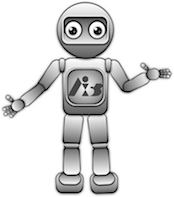Keynote Speaker on Tuesday, 21 April 2015:
Mark Coeckelbergh, De Montfort University
School of Computer Science and Informatics
Centre for Computing and Social Responsibility
Leicester, United Kingdom
http://www.dmu.ac.uk/about-dmu/academic-staff/technology/mark-coeckelbergh/mark-coeckelbergh.aspx
Title: “Human-like robots and automated humans: Socializing and contextualizing HRI”
Abstract:
Analyzing the discourse on health care I discern a worry about the automation and dehumanization of care. I argue that if there is such an automation and dehumanization this may already be present in the context and practices of modern health care, and that for introducing and evaluating robots in care we should not only look at the robot and the human-robot interaction, but also at the wider context of use and the potential changes in the practice of care. The development of robots and their interactive capabilities should be tuned to the quality and integrity of the context in which they are going to be introduced - a practice and context which has its own norms and values, and which already involves a specific technological culture (e.g a modern one). This more holistic approach to the ethics of HRI requires robotics researchers to look beyond the resources of empirical psychology for the "human" aspects of their work; in particular it suggests that they engage with other social sciences such as anthropology and to learn from the humanities.
Keynote Speaker on Wednesday, 22 April 2015:
Angelika Peer, Bristol Robotics Laboratory
University of the West of England
Bristol, United Kingdom
http://people.uwe.ac.uk/Pages/person.aspx?accountname=campus\a-peer
Title: “Towards Remote Medical Diagnosticians”
Abstract:
Successful medical treatment depends on a timely and correct diagnosis, but the availability of doctors of various specializations is limited, especially in provincial hospitals or after regular working hours. Medical services performed remotely are emerging, yet current solutions are limited to merely teleconferencing. Use case scenarios targeted in the European project ReMeDi feature a robot capable of performing a physical examination, specifically of the two most widespread examination techniques i) palpation, i.e. pressing the patients stomach with the doctor’s hand and observing the stiffness of the internal organs and the patient’s feedback (discomfort, pain) as well as ii) ultrasonographic examination. Beside quality teleconferencing, ReMeDi features a mobile robot (placed in a hospital) equipped with a lightweight and inherently safe manipulator with an advanced sensorized head and/or ultrasonic probe; and the remote interface (placed at the doctor’s location) equipped with sophisticated force-feedback, active vision and locomotion capabilities. The system is incrementally built following a user-centered design approach, and its usability with respect to the patient and the examining doctor is extensively studied in real world scenarios of cardiac examination. The talk will report about our ongoing work in realizing the aforementioned system.
